In 1930s Tunisia, French Doctors Feared a ‘Tea Craze’ Would Destroy Society
It was seen as a threat to colonial rule.
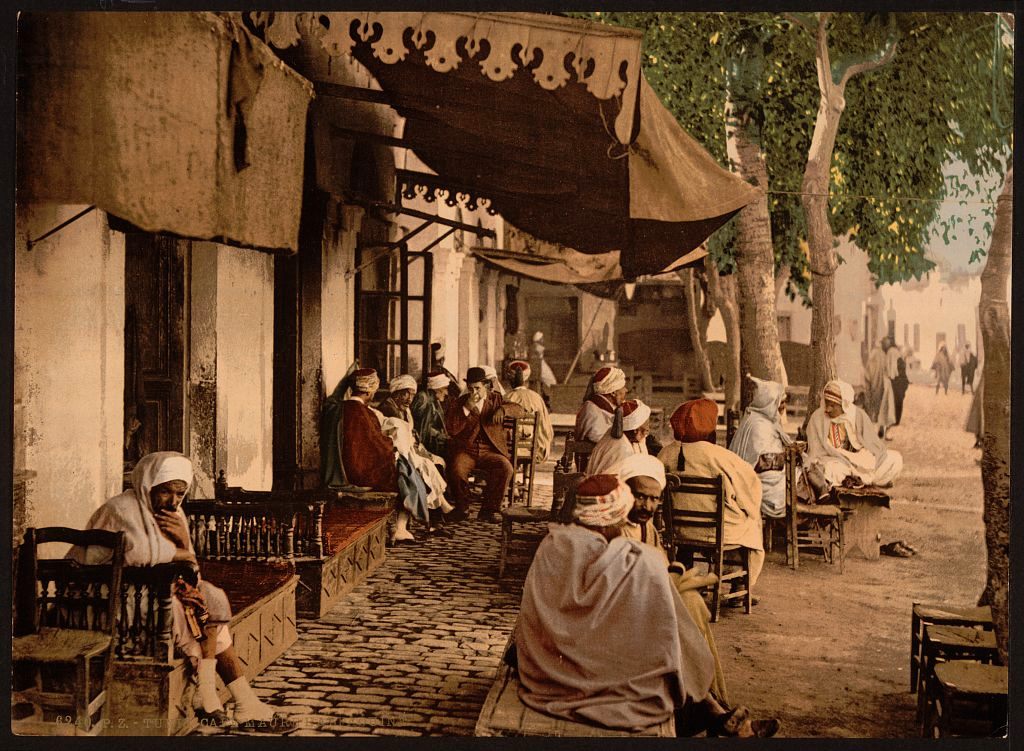
In 1927, at a meeting of the Academy of Medicine in Paris, a French-trained Tunisian doctor, Béchir Dinguizli, sounded the alarm about a “new social scourge” spreading like an “oil stain” across Tunisia. It had “entered our morals with lightning speed,” he warned, and if not stopped by French authorities, it had the power to paralyze Tunisian society.
The alarming threat? Drinking tea.
Tea had been introduced to Tunisia, a French colony since 1881, relatively recently. Although practically unknown before World War I, tea imports nevertheless shot up from 100,000 kilos in 1917 to 1,100,000 in 1926. The catalyst appears to have been the Italo-Turkish War of 1911-1912, which sent an influx of tea-drinking refugees from Tripolitania (modern-day Libya) into Tunisia.
The rapid spread of tea became a topic of discussion during several meetings of the Great Council of Tunisia in 1925 and 1926. Among these French administrators, there was real fear that the colonized population was turning into tea addicts, with medical, social, and economic consequences for France’s mission civilisatrice.
Throughout the 1920s and 1930s, numerous French authors (and one Tunisian) urged the French government to take action against tea, claiming that Tunisian men, women, and children were drinking it all day without moderation or restraint. The journal Colonial Annals summarized these fears in 1930, asserting, “The harm that [tea] causes is especially visible in the [Tunisian] countryside, where it weakens the race, which is literally intoxicated and morally and physically diminished.”

French publications named this phenomenon “teaism,” a medical diagnosis that had already been established in the 19th century, and ascribed it, somewhat bizarrely, both to an innate lack of self-control in all (uneducated) Tunisians, and to them preparing the “wrong” kind of tea in the “wrong” way. In 1941, the French doctor Edmond Sergent described in several scientific articles how Tunisians, instead of adding fresh tea leaves to already boiling water, added used leaves to the water as it boiled, creating a harmful, tar-like drink. Sergent also argued that Tunisians’ black tea was more dangerous than Moroccan green tea, which explained why cases of teaism were rare in Morocco, despite Morocco’s tea consumption being much higher.
According to Dinguizli, teaism was an addiction comparable to alcoholism, a form of chronic poisoning with nervous tremors, amnesia, palpitations, blurred vision, serious disturbances of the nervous and circulatory system, a general weakening of the body, and even a marked decrease in birth rates. Later authors delineated additional mental consequences, such as hallucinations, delusions, and even psychoses.
However, an altruistic, medical concern for Tunisians does not fully explain the colonial fascination with teaism. Instead, settlers were motivated by social fears and economic concerns.
The perceived social consequences of teaism were founded in the belief that tea addicts would do almost anything to satisfy their habit. According to Sergent, the whole salary of many Tunisian workers went “to the buying of tea and sugar.” When their money ran out, Tunisian teaists sold their last possessions, stole from employers, friends, and family, and, in Dinguizli’s words, lost their “usually docile character.” This alarmed the French, as those succumbing to the “vice of tea” were understood to be potential criminals. There were even court cases where the legal responsibility of Tunisians who had committed murder and manslaughter under the influence of tea was argued. The French doctor Henri-Paul-Joseph Renaud wrote in 1928 of discussions at the Society for Medical Sciences in Tunis about the case of a 22-year-old Tunisian who had committed “parricide during a hallucinatory attack,” due to his daily consumption of 75 to 100 grams of tea.
By the 1940s, a variety of publications had ceased to view teaism as an exclusively Tunisian problem, as diagnoses cropped up elsewhere in the Maghreb, such as, in 1948, the psychiatrist Charles Bardenat offhandedly ascribing an act of conjugal manslaughter committed in Algeria to the overconsumption of coffee and tea.
Meanwhile, the economic consequences of teaism were linked to fears of a lack of labor—a serious financial concern for French colonizers and upper-class Tunisians. Worrying stories spread about Tunisians too exhausted to work after nights of drinking tea, chatting, and gambling. In an article published in 1928, the pro-colonial politician Mario Roustan, a “director of public hygiene,” claimed that “from morning to evening, all day and for a large part of the night, [rural Tunisian men] are squatting around a tea kettle, drinking and doing nothing.” Tellingly, not a single case of a French settler in Tunisia being diagnosed with teaism can be found in the French publications.
These medical, social, and economic consequences were discussed at length in France as a potential threat to French settlement. The first of many articles about this “new intoxication” was published on the front page of the French newspaper, Le Matin. It appeared the day after Dinguizli’s paper, which was ominously titled “‘Teaism,’ A Personal and Social Danger.” In Tunisia, French administrators tried banning illegal coffeehouses, which served tea, and increasing customs duties on tea. There were also calls for posters and educational films on the dangers of tea and how to prepare it correctly, for creating a state monopoly on tea, and even a law restricting tea sales to pharmacies upon presentation of a prescription. But nothing helped.
In my postdoctoral research on teaism, Dinguizli was the sole Tunisian voice I uncovered among the publications dealing with the dangers of drinking tea from the 1920s to 1950s, and I could not find records of Tunisians’ responding to the medical diagnosis. This points to the lack of interest among colonial administrators in the view of the population they believed they were civilizing. Within the medical field, it’s possible Tunisian voices were similarly ignored, but the prominence of Dinguizli’s report suggests that theorizing on teaism simply held little interest for Tunisians, a somewhat reasonable silence when one considers that, despite decades of French concern, teaism is not an actual malady. Tea neither produced hallucinations nor induced crime, and it did not “corrupt” Tunisians. They simply enjoyed a new drink that French authors objected to.
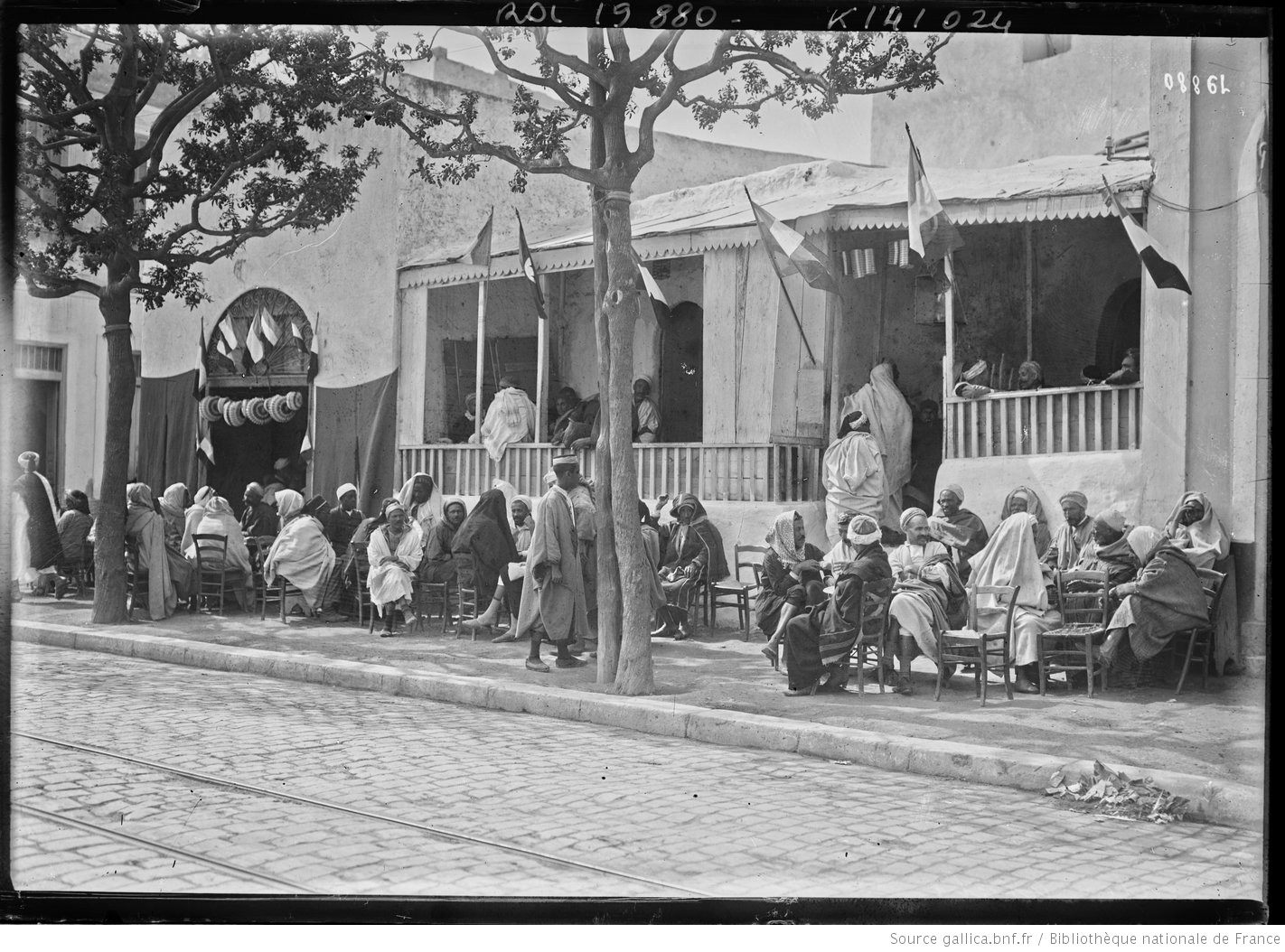
So why did French doctors and officials fret over teaism for so long? Their concern appears less baffling in light of tea’s reception in other countries. When tea first reached England in the 17th and 18th centuries, writers described it as un-British, “unmanly,” and altogether dangerous. Food or drink that is new, popular, and foreign regularly provokes misgivings and wild concern. Across Europe, there were initially comparable doubts about coffee—a foreign substance spreading unnaturally fast that was believed to endanger health and cause addiction. Even chocolate, once the drink of choice at rowdy British clubs, inspired similar concern.
Seeing so many Tunisians drink tea also hit a nationalist nerve for the French, who viewed tea as a British drink and its popularity as proof of British influence. In an 1887 book, for example, a French traveller in Morocco who is constantly offered tea laments, “Looks like the English have been there! Heaven confound them!” The French viewed coffee, which was produced in their colonies of Martinique and La Réunion, as the drink of the Enlightenment and reason. But, as a 1928 magazine article dramatically put it, in Tunisia, “Tea has killed the divine ‘cavoua [coffee].’”
To see Tunisians enjoying this unfavored drink fed French fears. The sight of Tunisians sitting and chatting over tea fueled settler prejudices about Tunisians as lazy and immoderate—nearly all descriptions of teaism focused on the economic consequences. But as a ruling minority, they particularly feared attacks, revolt, and any sign of the population losing their supposed “docility.” In a 1928 article, for example, Renaud, wrote, “Settlers [and] Muslims of the enlightened class sounded the alarm, denounced the rise of attacks on goods and people, and asked the Government to carefully lead the fight against the increase in tea consumption.”
In 1956, Tunisia gained independence, following years of violence and negotiations. At that point, teaism declined as a medical diagnosis (though, surprisingly, not entirely). The irony of teaism is that the only real epidemic was the diagnosis of teaism itself. Today, tea is practically Tunisia’s national drink.
Gastro Obscura covers the world’s most wondrous food and drink.
Sign up for our regular newsletter.








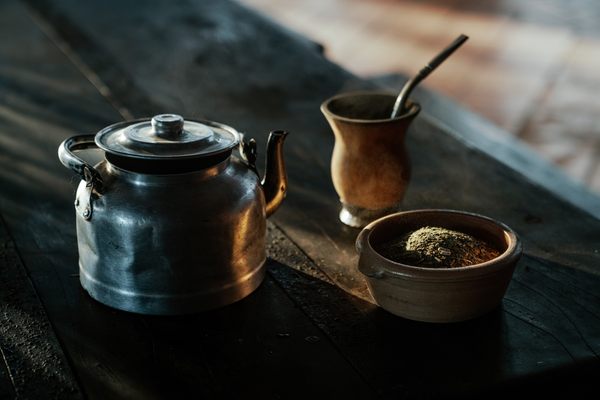


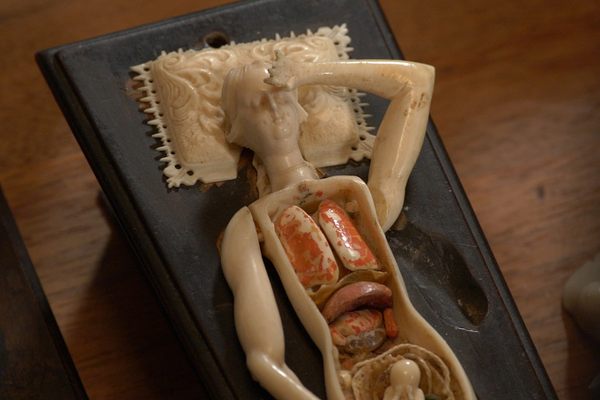


















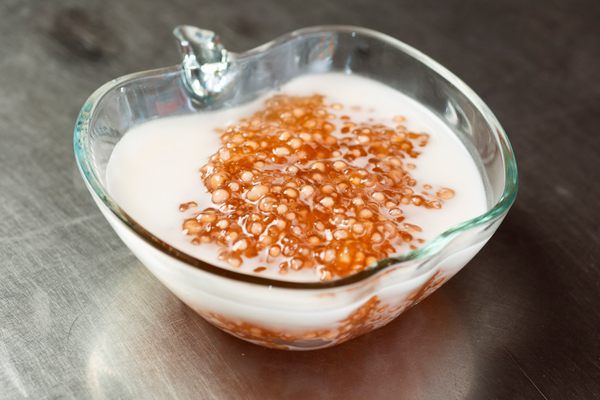


Follow us on Twitter to get the latest on the world's hidden wonders.
Like us on Facebook to get the latest on the world's hidden wonders.
Follow us on Twitter Like us on Facebook